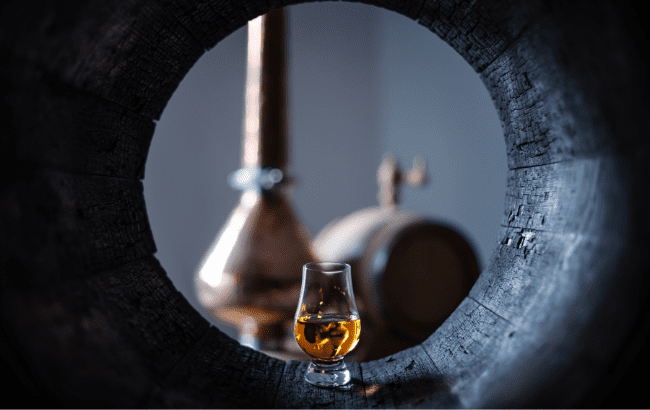Whisky industry shares concerns over ‘biased’ CWA
Following the launch of the Cask Whisky Association (CWA) last week (21 September), members of the whisky trade have shared concerns about the legitimacy of the organisation.

The CWA was launched last week with the aim of “protecting consumers, customers and independent bottlers from unscrupulous traders, and also from huge price hikes”, chairman of the advisory board and spokesman for the CWA Colin Hampden-White told The Spirits Business.
However, members of the whisky trade have voiced concerns that the CWA is not a ‘credible or legitimate’ organisation well suited to achieving these objectives.
One whisky expert told The Spirits Business that the CWA “lacks transparency and accountability”.
They said: “The CWA claims to be a self-regulatory body, but it has no real authority to enforce its own rules.
“The CWA was founded by a group of individuals with a vested interest in the cask whisky market.”
Another member of the whisky trade noted that the CWA has “a lack of established longstanding brokers among its board” and that the panel has a “clear London bias” with a “lack of Scottish interests represented”.
They added: “Scotch whisky has a longstanding trading relationship between distillers, bonders, brokers and traders. The very fact that such an association has not been necessary until the involvement in the whisky supply chain of companies that several of the folks involved in this self-appointed association entered the fray is the ultimate grift of this association.”
They also confirmed plans to speak with MPs to try to outline the case before the CWA “politically institutionalises the organisation”.
“All we really ask is for a wider consultation – this seems so insular that it’s unhealthy,” they said.
However, they did note that the concept of a cask association could work for the whisky industry with amendments made, including the involvement of more distillers.
“Distillers need to be at the table. Including Speyside Distillers, which is a standalone private equity distiller, is not enough. It’s not Ian Macleod; it’s not Gordon & MacPhail. Diageo is one of the great Scotch whisky defenders historically – it’s a great company for Scotland and for Scotch whisky – I think it’ll need to be more involved, too,” they said.
‘A step back’
In addition to the concerns raised to The Spirits Business, on Saturday (23 September), whisky specialist George Koutsakis published an article for Forbes, in which he said the CWA is “not the answer to protecting Scotch whisky”.
He noted that the ‘majority’ of the founding members of the CWA own and operate cask trading companies that also sell casks for investment.
He wrote: “Much like a student does not grade their own paper, a criminal does not choose their own verdict, and an official does not elect themselves, cask brokering companies should not, in any scenario, be self-proclaiming themselves as protectors and advisors of the entire cask whisky industry and positioning themselves above all the other companies who are operating fairly and with integrity.”
Furthermore, Koutsakis expressed concerns that the CWA would further “mislead newcomers” to the whisky industry, by leading them to think that the association was an elected body that protects casks.
He concluded by saying: “If this group is to exist it must have only impartial, unbiased members. No casks sellers, no brokers. The members cannot stand to profit from the association in any way and must be knowledgeable enough to go up against shady brokering companies and protect the industry.”
The Spirits Business has reached out to the CWA for comment.
Related news
Bunnahabhain debuts cask investment programme
Diageo: India Rare Spirits presents ‘infinite possibilities’
